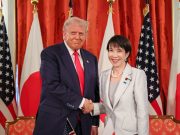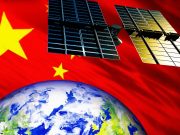(Singapore, 28.08.2025) China-ASEAN Expo (CAEXPO), which was held annually in Guangxi province’s Nanning city since 2004, will open next month on the 17th as scheduled.
This year, the participating countries will explore AI s a new collaboration field, as China seeks to deepen ties with the 10 Asean nations.
“This expo is now in its 22nd edition,” said Wei Zhaohui (韦朝晖), Secretary General of CAEXPO. She was giving an overview of the upcoming expo to visiting media representatives from Asean countries.
“The expo has progressed from an initial phase focused on implementing a multilateral free trade agreement to later including investments. This time, it is exploring new collaborative areas such as AI, green economy, and electric vehicles,” added Wei.

This latest expo takes place while the world is still reeling from the blows of the US high tariffs. But Wei dismissed the US pressures as irrelevant, emphasizing that the expo moves at its own pace displaying a community spirit between China and Asean.
She also pointed out that China has already struck zero-tariff deals with most of the Asean countries signalling its commitment to free trade.
The coming expo would include a pavilion that showcases recent developments in artificial intelligence, including technologies and products. The event will also address green economy as one of its nine main themes, alongside AI and supply chain connectivity.
Chinese media reports have earlier indicated that the expo will host over 1,600 companies representing 40 countries, among which 470 are from overseas. China is expected to sign some key deals and announce some projects at the expo.
Guangxi’s geographical proximity to five Asean countries conveniently makes it a strategic hub for sharing AI expertise with the region, especially the less-developed countries like Myanmar and Laos. Guangxi is also a convenient launchpad for Chinese AI firms and digital services seeking to break into the Asean market.
China’s provision of AI training, infrastructure, and tools to Asean, which has long started before this expo, has fostered goodwill and mutual benefits. Moreover, being supportive to Asean has enabled Guangxi to become a center for trade and innovation.
Though a profit-making company, Maiyue Technology is a Guangxi home-grown enterprise that has also contributed to Asean’s progress in AI. Currently, this company which creates its own AI hardware and software markets a range of AI tools in Asean, where it has a strong presence.
“The company was founded and has grown to its current scale on the soil of Guangxi. It is therefore natural that we are oriented towards Southeast Asia, seeing it as our main market, “ Huang Yuyang, Maiyue’s marketing department manager, told Fortune Times.
“The region has in return helped us develop our unique competencies. For example, we are ahead of many Chinese AI companies in producing AI technologies that support unfamiliar languages like Thai, Cambodian, and Burmese,” he added.
Huang regrets that Singapore is one Asean market that Maiyue has yet to get into. “I know Singapore is very advanced in AI and has even produced a multilingual software for Southeast Asia. It will be good that we could collaborate,” Huang said hopefully.
As for support from the government’s end, Guangxi has set up the Asean Artificial Intelligence Collaborate Innovation Center. This is a multifaceted body that works to boost innovation, strengthen Asean-China AI collaboration, and build Nanning into a pivotal regional AI hub.
While AI is now the buzz around the world, not everyone is convinced that it is entirely beneficial to humans or free of drawbacks. Professor Wang Shiyong from Guangxi University’s School of Journalism, for one, has been researching on the pros and cons of AI. He shared his thoughts and findings with the journalists from Asean.
“To begin with, AI companies may feel compelled to present only certain information to users while withholding others,” Prof Wang told Fortune Times. “But that is not necessarily due to some quirks on their part. Their decisions often stem from ethical concerns.”
“For instance, medical professionals cannot disclose everything they know about some treatments even if they want to assist others. Sensitive information related to, say, race, if released to the public, may provoke societal issues,” continued Prof Huang.
“Ultimately, it comes down to whether users can recognize what vital information is missing and what may be misleading. In the age of AI, a journalist’s role demands sharp, astute judgment,” added the professor.
“If Guangxi could take the lead in training Asean’s media practitioners, it would help sustain their professional credibility and influence in this new era of AI. Guangxi’s relevant institutions, such as that of Professor Wang, could collaborate with some Asean agencies to cultivate talents who are both media- and AI-savvy, ” Vietnamese journalist Nguyen Trang Thi made the call while participating in a dialogue between Asean journalists and Guangxi’s media experts.
“That, in turn, would help keep relationship between Guangxi and Asean strong,” she added.





































